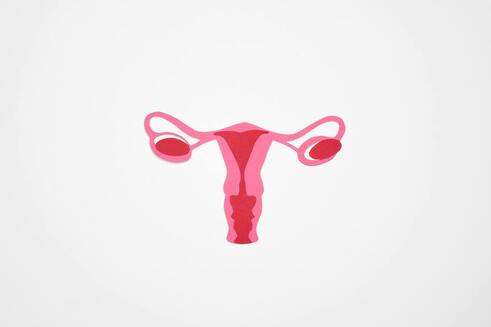Authored by Dr. Barrett
Polycystic Ovary Syndrome (PCOS) impacts between 5-10% of people with ovaries. The word ‘syndrome’ is important. A disease generally has a known cause, clear symptoms and accepted treatments. A syndrome however is a collection of signs and symptoms that tend to appear together. Syndromes generally don’t have an understood cause. This is true of PCOS. Over the years the diagnostic criteria has shifted and we still don’t have a very clear way to diagnose PCOS.
In general the signs and symptoms of PCOS may include:
Some people with PCOS just have irregular cycles or absent/delayed ovulation. It is most common to have irregular periods, signs of elevated androgens (acne and facial hair growth), and cysts on the ovaries.
PCOS can increase your risk of other health concerns including: (1)
The typical treatment for PCOS is birth control pills. These don’t cure the condition but they can control some of the symptoms such as irregular periods, acne and excessive facial hair growth. Other medication options include medications for managing blood sugar and medications that lower androgens.
There are several blood tests to consider if you have or think you may have PCOS:
In naturopathic medicine we take several approaches to treating PCOS including:
A small snapshot of what could be included on a treatment plan:
Naturopathic medicine has many tools to help manage PCOS. It’s important to note that PCOS is a lifelong syndrome. We are all programmed metabolically so the lifestyle changes to improve symptoms and prevent the possible outcomes mentioned above need to be lifelong.
References:
In general the signs and symptoms of PCOS may include:
- Irregular periods
- Growing thick, dark hair on the upper lip, chin, chest, or belly
- Hair loss on the head
- Acne
- Polycystic ovaries on ultrasound
- Elevated androgens (type of hormone) in the blood
- Weight gain
Some people with PCOS just have irregular cycles or absent/delayed ovulation. It is most common to have irregular periods, signs of elevated androgens (acne and facial hair growth), and cysts on the ovaries.
PCOS can increase your risk of other health concerns including: (1)
- Diabetes (high blood sugar)
- High cholesterol levels
- Infertility
- Sleep apnea
- Depression or anxiety
- Eating disorders (2)
- Losing interest in sex
The typical treatment for PCOS is birth control pills. These don’t cure the condition but they can control some of the symptoms such as irregular periods, acne and excessive facial hair growth. Other medication options include medications for managing blood sugar and medications that lower androgens.
There are several blood tests to consider if you have or think you may have PCOS:
- Fasting glucose and insulin
- HbA1c
- LH and FSH prior to ovulation
- AMH (Anti-Mullerian Hormone)
- Androgens including free and total testosterone, DHEA-S and androstenedione
- SHBG
In naturopathic medicine we take several approaches to treating PCOS including:
- Addressing insulin resistance and blood sugar regulation
- Reducing inflammation that perpetuates insulin resistance and elevated androgens
- Supporting the hypothalamus-pituitary-adrenal (HPA) axis. Androgens are derived from both the ovaries and the adrenals so supporting these glands is important.
- Using nutrients and herbs to lower androgen levels, support ovarian health, and reduce insulin sensitivity
- Assessing and supporting thyroid and gut health
A small snapshot of what could be included on a treatment plan:
- Lowering the carbohydrate content in the diet and focusing on fat and protein intake.
- Increasing vegetable and fiber intake
- Adding physical activity
- Managing the stress response to take strain off the HPA axis
- Using nutrients and herbs such as:
- Inositol
- Spearmint tea
- Licorice
- NAC
- Inositol
Naturopathic medicine has many tools to help manage PCOS. It’s important to note that PCOS is a lifelong syndrome. We are all programmed metabolically so the lifestyle changes to improve symptoms and prevent the possible outcomes mentioned above need to be lifelong.
References:
- Robert L Barbieri, MDDavid A Ehrmann, MD UptoDate “"Patient education: Polycystic ovary syndrome (PCOS) (Beyond the Basics)"
- Bernadett M, Szemán-N A. [Prevalence of eating disorders among women with polycystic ovary syndrome]. Psychiatr Hung. 2016;31(2):136-45.


 RSS Feed
RSS Feed